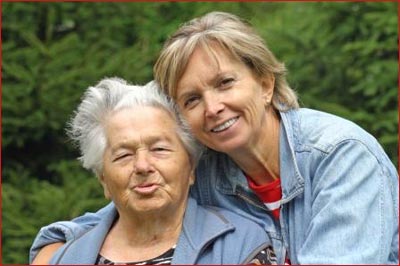Teach Children to Care for Critically Ill Relatives
Therefore it is crucial that we learn how to care for those that we love when they are sick.
All those who are living will one day depart from this world, but before they depart, they are usually ill, lying on a hospital bed. Their bodies and organs slowly deteriorate as they are being consumed by different diseases. This cause their body slowly die, losing their ability to function. Therefore it is crucial that we learn how to care for those that we love when they are sick.
Caring for these people will, while they fight with pain. By showing our children how to take care of those in poor health, when we pass sway, we are assured that they will be able to take care of us.
How should we care for our loved ones when they become critically ill?
There are two components to caring for the ill:
1. Caring for them physically
We must find the best doctors who can provide treatment, depending on our situation and what we can afford.
2. Caring for them emotionally
If the person is about to pass away, it is very important to maintain his/her consciousness. What people’s mind are focused on will determine their afterlife, whether they will be destined for heaven or the unfortunate realms.
The Lord Buddha said,
“A cloudy mind before death will lead one to the unfortunate realms (Duggati). A clear mind before death will lead on to the fortunate realms (Sugati)”.
What is Sugati?
Sugati refers to a happy or fortunate realm. A fter departing from this world, one will be reborn a human (Manussaloka:Earth), an angel (Devaloka:Heaven) or a Brahma (Brahmaloka: Celestial realm).
What is Duggati?
Dukkhati refers to an unhappy or unfortunate realm. After departing from this world, one will reborn an animal (Derajchanpome: Earth) a hungry ghost, a demon, or a Hell creature (Pretapue, Asurakayapome, or Narokkapume: Hell).
Sugati and Duggati are the destinations of those who pass away where they must face the consequences of their actions on Earth. The final destination depends on the state of mind at the last moment, which could be one that is clouded or clear. Monks refer to this as “the War of Existence,” the precarious battle to sugati or duggati.
Regardless of the treatment results, “The caregiver must care for the patient’s mind so that his or her mind is clear at all times. This will give the patient hope and the courage to fight the disease.”
Caring for them emotionally
There are various ways in which the caregiver can give a patient courage:
1) Keep them away from worries. Do not let them hear about the damage of property, their children’s problems, or anything that might disturb them.
2) Bring their mind to a state of happiness by reminding them of the meriths they made. Talk about the meritorious deeds that the patient performed, such as ordaining as a monk, offering the Kathina robes orbes or other robes, providing support to social institutions, or giving aid to other people.
3) Encourage them to perform new merits depending on their capability. Invite them to be generous by offering alms to monks every day. If they cannot get up, invite the amonks to receive alms inside the house. If this is not convenient, allow the patient to make a resolution with the alms, and offer the alms in the patient’s place. When the alms have been offered, tell the patient about it so that they will be delighted.
4) Persuade them to strictly observe the 5 Precepts.
They should not kill even an ant or a mosquito.
5) Invite them to meditate. This is very important. You could have the patient listen to a chanting tape or a Dhamma tape by a monk that the patient respects. You can read Dhamma books to the patient. If you can do this every day, the patient might have enough merit to be cured, because the power fo the old merit augments the new merit s/he performs. If the patient has no more merits and it is time for him/her to depart, the patient will go to a fortunate realm because s/he maintained a clear mind before passing away.
Bringing a patient to this state requires the caregiver to be immersed in merit and to make resolutions (with the power of the past merit the patient made) for the patient’s protection against his/her disease. This will help improve the results of the patient’s treatment.
In conclusion, the final second in a patient’s life is very significant because that is when we can help them win the “War of Existence.” Winning is accomplished by having a clear mind before departing. This is absolutely necessary.
Therefore, when our relatives are ill, regardless of our closeness to them or the severity of their illness, we should be able to take good care of them physically and psychologically. When our children are mature enough, we should teach them to look after their own health and sympathize with their relatives. Teaching them to care for others will clearly show them the truth about life that everybody must die. Further more, when it is time for us to go, they can help us win the “War of Existence.”
Meditation - Related Articles
" />
" />
" />
" />
" />
" />
" />
" />
" />
" />
" />
" />
" />







